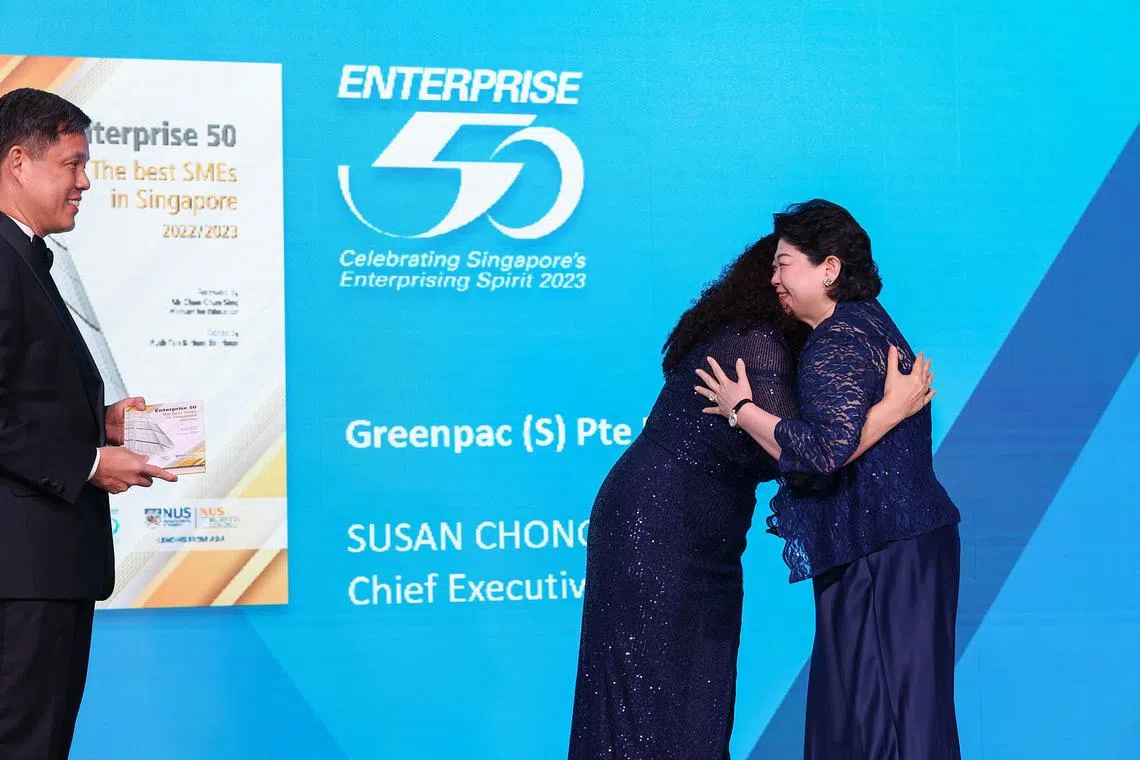Reinvent rules of the game to beat copycats: Howard Yu
IN a world full of copycats, what can companies do to edge out the competition, and continue to stay at the top?
This is one of the many questions that Professor Howard Yu addresses in his new book, Leap: How to thrive in a world where everything can be copied.
A widely acclaimed expert on innovation and corporate disruption, Prof Yu, 38, serves as Lego professor of management and innovation at the IMD business school in Switzerland. IMD, which has been ranked one of the top schools for its executive education and master's programmes, also has a presence in Singapore.
A former banker from Hong Kong, Prof Yu received his doctoral degree in management from Harvard Business School, and contributes regularly to Forbes, Fortune and other renowned publications.
Apart from corporate strategy, Prof Yu has worked on hot-button issues such as the risks and opportunities for companies presented by Big Data, artificial intelligence and the Internet of Things. He also delivers training programmes for conglomerates such as Mars, Maersk and Nestlé.
Throughout the years, Prof Yu's research and consulting work has largely focused on Asian economies. For instance, he has examined strategies adopted by Western firms such as GE, IBM and Novartis to make inroads into China and other emerging markets. Other notable research partners include Singapore's Temasek Holdings, China's Tencent, and Japan's Nitto.
Navigate Asia in
a new global order
Get the insights delivered to your inbox.
In Leap, Prof Yu highlights that mastering (or copying) old tricks of the trade is no longer sufficient to ensure a firm's survival. Instead, organisations these days need to harness new strategies and advancements in technology - all while leveraging tectonic shifts in the market. "No value proposition, no matter how unique, remains unchallenged," he says.
Drawing on historical case studies of successful leaps and tragic falls, he argues that the organisations that can prosper and reinvent themselves are the ones capable of leaping from one knowledge discipline to another. "Companies need to continually reinvent themselves. The only way for companies to stay on top and fend off copycats is not through low-cost competition - it's not about building another factory in China. It's about developing and incorporating new knowledge disciplines into your core business to reinvent the rules of the game of your business,'' says Prof Yu. In his book, he also articulates five fundamental principles that will allow companies to stay successful in the face of copycat competition: understand your firm's foundational knowledge and its trajectory; acquire and cultivate new knowledge disciplines; leverage seismic shifts; experiment to gain evidence; and dive deep into execution.
Readers will also gain insight on how the Swiss drugmakers of Basel such as Novartis, keep making money while maintaining pole positions for over two centuries, and how New York-based NGO Community Solutions tackled homelessness by combining human empathy with data analytics.
Yet another interesting story is the resilience of Procter & Gamble (P&G) over the years. Besides automating soapmaking which others could copy, P&G became the first firm to advertise on radio and created dramas targeted at housewives - leading to, quite literally, the coining of the phrase "soap opera".
In fact, P&G not only leapt into new fields of consumer psychology and advertising, but also shifted the knowledge base of its own industry at the risk of cannibalising its own products. Thankfully, this gamble paid off and its synthetic detergent, Tide, went on to outstrip all other brands in the market, emerging as the bestseller in 1949. Said P&G founder, William Procter of the new synthetic detergent: "This may ruin the soap business. But if anybody is going to ruin the soap business, it had better be Procter & Gamble."
According to Prof Yu, self-cannibalisation occurs when a firm chooses to replace one product or process with another that is potentially worth less. "To leap into a new knowledge discipline is to de-emphasise the old, and quite often, the new product or services launched will exert substitutional pressure on the old ones."
Similarly, Prof Yu drew parallels to Apple Inc, where Steve Jobs was willing to cannibalise the company's existing business before its decline, with the introduction of the iPod Nano when the iPod Mini was still huge, and the subsequent launch of the iPhone when iPod sales were skyrocketing.
That said, Prof Yu points out that the onus to make bold decisions that will facilitate innovation, often falls on chief executives. "So CEOs must sometimes absorb the career risks that managers don't want to take... At critical times, the people at the top need to roll up their sleeves. . . And they must be able to say: 'The money is not important. We've just got to do this'."
About Howard Yu:

Copyright SPH Media. All rights reserved.
